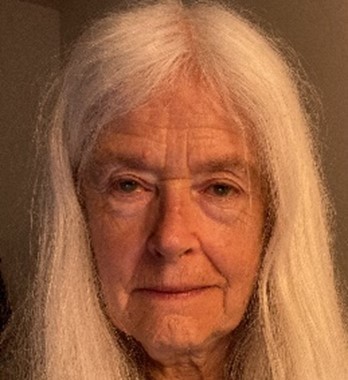You are here
- Home
- International Development Seminars
- IKD Seminar Series: Beyond Climate Fixes: From Public Controversy to System Change
IKD Seminar Series: Beyond Climate Fixes: From Public Controversy to System Change
Held of MS Teams
In the Global North, governments have made strong commitments to reduce GHG emissions. Yet such reductions have been slow or patchy. Why?
Political elites have been evading the causes of climate change through deceptive fixes. Their market-type instruments such as carbon trading aim to incentivise technological innovation which will supposedly decarbonize or replace dominant high-carbon systems. In practice this techno-market framework has perpetuated climate change and social injustices, thus provoking public controversy. Using this opportunity, social movements have counterposed low-carbon, resource-light, socially just alternatives. Such transformative mobilisations can fulfil the popular slogan, ‘System Change Not Climate Change’. This book develops key critical concepts through case studies such as GM crops, biofuels, waste incineration and Green New Deal agendas.
Author Les Levidow was joined by colleagues on the 11th of October 2023 exploring key themes in the book.
You can watch the recording here:
Speakers:
Les Levidow is a Senior Research Fellow at the Open University. Since the 1990s he has studied agri-food-environmental issues, especially technofixes, public controversy and alternative agendas from civil society networks. A long-time focus was conflicts over GM crops in the European Union, USA and their trade dispute. two books: Governing the Transatlantic Conflict over Agricultural Biotechnology: Contending Coalitions, Trade Liberalisation and Standard Setting (Routledge, 2006); and GM Food on Trial: Testing European Democracy (Routledge, 2010). His most recent book is Beyond Climate Fixes: From Public Controversy to System Change (Bristol University Press, 2023). In the past decade he has researched agroecology as a transformative agenda, initially European networks, and more recently South American agroecology agendas for a solidarity economy and food sovereignty. He is Co-Editor of the journal Science as Culture.

Helena Paul, co-Director of EcoNexus, has worked on corporate power, especially in connection with genetic engineering, since the 1990s. She co-founded the following initiatives: Genetic Engineering Network UK, No Patents on Life Coalition and GM Freeze UK. She has also researched issues around carbon markets, especially attempts to delay reducing carbon emissions by ‘offsetting’ them against future carbon capture and storage (CCS). She is co-author of Hungry Corporations: Transnational Biotech Companies Colonise the Food Chain (Bloomsbury. 2003) and of numerous reports such as, A Foreseeable Disaster: The European Union’s Agroenergy Policies and the Global Land and Water Grab (Transnational Institute, 2013).

Sam Mason is a Policy Officer at the Public and Commercial Services Union (PCS) covering sustainability, climate change, trade, and international issues. She focuses particularly on a Just Transformative Transition as a whole economy approach, and energy transition. She is the union's lead contact for the global Trade Unions for Energy Democracy (TUED) initiative. She is also a representative on the Climate Justice Coalition (CJC), a UK-based coalition of groups and individuals – including environment and development NGOs, trade unions, grassroots community campaigns, faith groups, youth groups, migrant and racial justice networks – working to build solidarity and power around climate justice. Within the CJC she is also part of coordinating the CJC trade union caucus.

Chair
Dr Lorena Lombardozzi is a Senior Lecturer in Economics at the School of Social Sciences & Global Studies in the Faculty of Arts and Social Sciences (FASS) at the Open University. She is Co-Director of IKD: Innovation, Knowledge and Development Research Centre. She completed her PhD thesis in Economics at SOAS, University of London (fully funded by SOAS Economics dpt.) with a title ‘A nexus between the role of the state, market transition and food consumption: The case of Uzbekistan’. Lorena holds a MSc from SOAS in Political Economy of Development (fully-funded). She received a previous Masters in Development Economics from University La Sapienza of Rome, Italy. Before returning to academia Lorena worked as a development economist in Latin America in 2014, in Uzbekistan for the regional office of UNODC in Central Asia from 2010 to 2012, and between 2007 and 2010 with the European Commission and the Italian Ministry of Foreign affairs in the field of development economics, international trade and environmental policy.
Book Details 50% discount code CNF50 can be used until the end of October through: https://bristoluniversitypress.co.uk/beyond-climate-fixes Book summary is available in this article: “Technofixes or solidaristic commoning? Our climate strategy must combat the 'technofixes-plus-markets' fraud”, The Ecologist, March 2023, https://theecologist.org/2023/mar/20/techno-fixs-or-solidaristic-commoning
Share this page:
Monthly Event Archive
- December 2024 (1)
- November 2024 (2)
- May 2024 (1)
- March 2024 (2)
- January 2024 (1)
- December 2023 (2)
Contact us
To find out more about our work, or to discuss a potential project, please contact:
International Development Research Office
Faculty of Arts and Social Sciences
The Open University
Walton Hall
Milton Keynes
MK7 6AA
United Kingdom
T: +44 (0)1908 858502
E: international-development-research@open.ac.uk
.jpg)